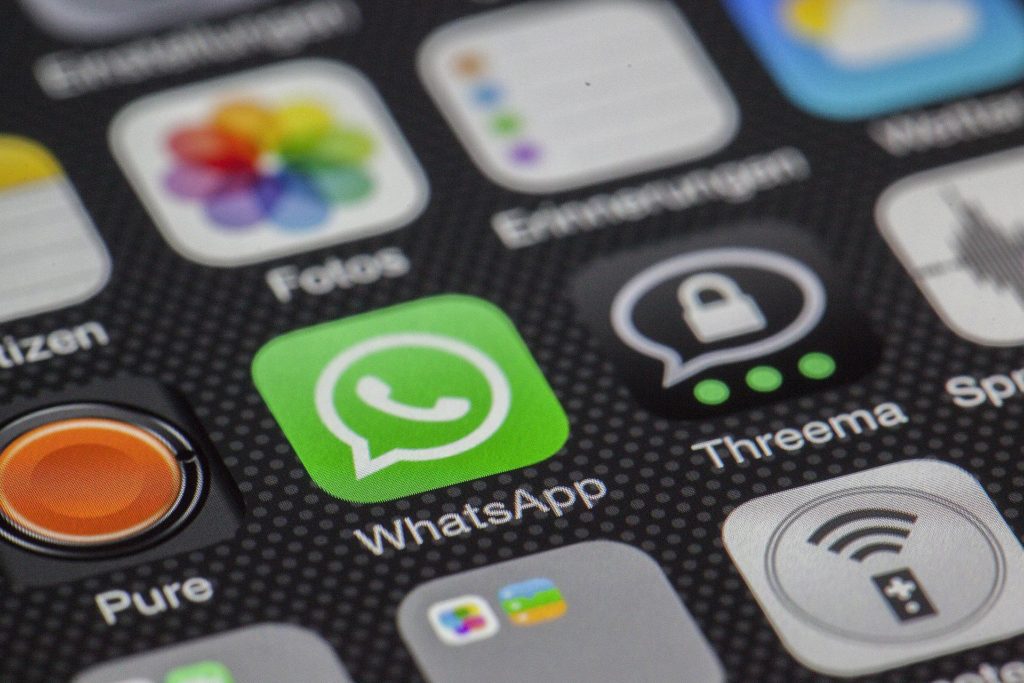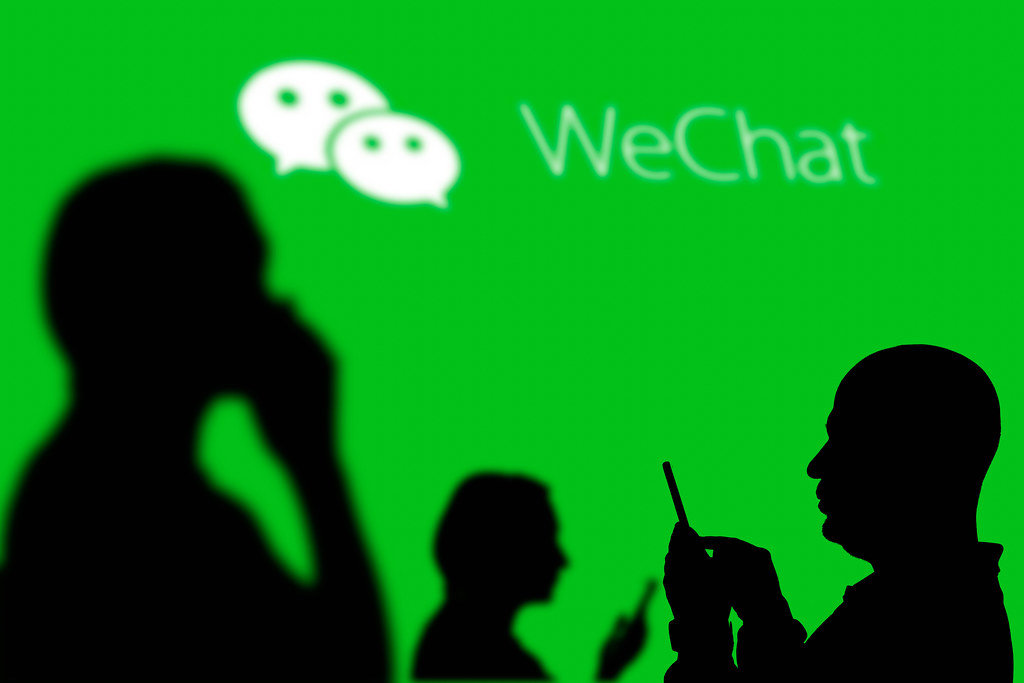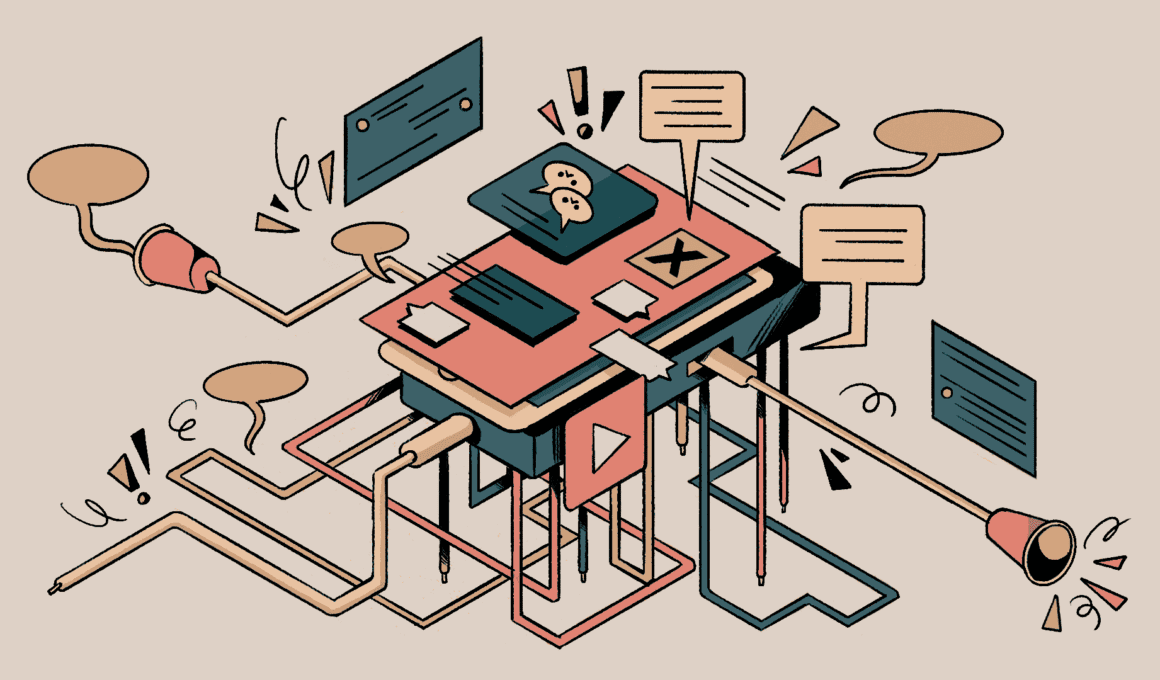EDITOR'S NOTE
This story was made possible by a grant from the Solutions Journalism Network’s Advancing Democracy Initiative. Please take a few minutes to share anonymous feedback with The Yappie and support our work by making a donation.
IN MAY 2020, Nick Nguyen watched as the nation erupted into protests calling for police accountability following the killing of George Floyd.
His conversations with his parents, however, revealed an alternative universe—one in which white supremacy ideology defined the protests as widespread violence, claimed that Black people were thugs acting out, and emphasized the “bad things” Floyd had done.
He was stricken.
Where was this misinformation coming from? Much of it was spreading across ethnic media platforms, regurgitated with more exaggerated details each time. But the bulk also echoed far-right narratives that tried to inflame racial relations by drumming up conflict.
This couldn’t go on, Nguyen thought to himself. “Information has evolved such that people just couldn’t tell the difference between what was real and what was pretend,” he told The Yappie. “And there is very little media literacy, particularly in our community.”
Across the country, others were coming to the same conclusion.
Eileen Huang, then a junior at Yale, published a viral open letter to the Chinese American community calling out its history of anti-Blackness, including buying into and perpetuating racist stereotypes about Black people.
On social media, Indian Americans pointed to decades-old colorism rooted in colonialism, citing its insidious effects among South Asians who look down on Black people.
This was a conversation decades in the making. The model minority myth had done its job, wedging itself between Black and Asian communities and pitting them against each other.
The current moment was a tipping point—and the start of something new.
A growing crisis
There’s no doubt that online misinformation and disinformation are a growing threat to democracy. Among Asian Americans, the vast majority of whom don’t speak English as their first language, it’s a full-blown crisis.
Two-thirds of all Asian Americans are immigrants. One-third have limited English proficiency while almost 75% speak a language other than English at home. Because of this lesser familiarity with English, they often prefer to engage with in-language social media platforms and services—nearly one in six Asian Americans use messaging applications such as WeChat, WhatsApp, and Kakao to discuss politics, according to a 2020 voter survey conducted by AAPI Data, APIAVote and Asian Americans Advancing Justice – AAJC.
These platforms center Asian Americans and as a result, the issues that spark dialogue there often differ from those that frequent English-exclusive spaces. A 2018 study by the Tow Center for Digital Journalism noted that top issues on WeChat, such as affirmative action and census data disaggregation, “hardly registered a blip on the English-speaking media radar.”
But these types of private communications serve as accelerants for the spread of misinformation and disinformation. WeChat is dominated by right-wing misinformation because of the way it favors speed and sensationalism; WhatsApp’s forwarding function allows misinformation to travel to a wider reach.
Disinformation campaigns targeting Asian communities have enabled voter suppression efforts and directly impacted their ability to participate in democratic processes. They also position Asian Americans for an automatically unstable vantage point in politics, their perceptions skewed as a product of what they consume.
“There is very little media literacy, particularly in our community.”
— Nick Nguyen
Even when institutions like the government do offer in-language resources, translation services often heavily favor Eurocentric interpretations and fail to address necessary contextual factors, according to a March essay published in the Harvard Kennedy School Misinformation Review.
Vietnamese Americans, for example, hold “distinct historical and contextual understandings of the meanings of political terms and phrases—e.g., ‘socialist,’ ‘communist,’ ‘relationships with China,’ and general U.S. political infrastructure,” researchers at the University of Washington’s Center for an Informed Public noted. “Differences in these understandings allow ‘sticky’ misinformation narratives around candidates being ‘socialists,’ or foreign interference in the U.S. election, to gain traction.”
It doesn’t help that platforms like YouTube and Facebook, which host their own hubs for different Asian American groups, refuse to take down content rampant with falsehoods and usually let baseless claims go unchecked.
And though the World Health Organization has recently collaborated with U.S. social media companies to ensure accurate scientific material appears first when people search for COVID-related information, these efforts exclude leading in-language platforms like WeChat and Kakao despite their broad base of users.
This kind of problem is like the Greek monster Hydra—cut off one head and two grow back in its place.


A new kind of network
Within weeks of the first protests over George Floyd’s death, Asian Americans were launching fact-checking initiatives aimed at countering misinformation and disinformation. A range of advocacy groups began debunking lies across social media, adding fact-checking to their arsenal of daily operations. Experts and scholars started regularly tweeting threads to straighten the record on common misconceptions.
Backed by the Progressive Vietnamese American Organization (PIVOT), Nick Nguyen and a group of Vietnamese Americans founded the website Viet Fact Check, dedicated to publishing political fact-checks in both English and Vietnamese. Meanwhile, Eileen Huang linked up with several other Chinese American college students, and together, they started the WeChat Project—now known as the Xīn Shēng Project—to combat right-wing disinformation on the Chinese social media platform WeChat.
Both groups hoped to target a specific population, the ones most vulnerable to disinformation: Asian immigrants unable to access English resources for verification.
Sticking to the facts: Viet Fact Check
Viet Fact Check’s mission is to “empower Vietnamese Americans with fact-checked, source-verified analysis and rebuttals in English and Vietnamese to combat the onslaught of misinformation that is circulating widely in our Vietnamese American communities.”
The group closely tracks the buzzwords and ideas that stand out across conversations in the Vietnamese American community and use those discussions to determine what needs to be written. They’ve focused heavily on fact-checking disinformation that spreads on YouTube, especially around COVID-19, and producing explainers on topics like inflation and the war in Ukraine.
Understanding the Vietnamese diaspora’s fears around Communism, the Viet Fact Check team has also worked to debunk misconceptions around China. One headline reads: “Is Black Lives Matter a pro-communist China group?” while another asks, “Is Biden enriching China by ordering at-home COVID-19 tests from China?”
Each fact check starts with the claim being made before providing a truthfulness rating, accompanied by a colorful meter, and laying out why. Using links to primary sources, such as the Food and Drug Administration’s website or a press briefing with White House Press Secretary Jen Psaki, each piece invites readers to do their own research.
“Our target audience is Vietnamese elders, and most of them did not receive a college education,” noted managing editor Diep Tran, a culture journalist and critic whose writing has appeared in The New York Times and NBC Asian America. “You have to read it from the point of view of how someone like that would read it. Therefore, you have to simplify the language a little bit, you have to make things short, or you have to not assume they know how American government works.”
The all-volunteer team often decides on what to write about based on rumors they pick up from their family, friends, or social media. They’ll start by drafting the fact check in English before sending it to their translator. Once it’s translated and published, they create graphics to present the information to their following of nearly 3,000 on Instagram, which has gained traction among younger Vietnamese Americans.
“That audience is the one that's going to be sending it to their parents or using it as a resource for whenever they talk to their parents and their parents say, ‘Tests are made in China, therefore they’re unsafe,’” Tran said, using one common piece of misinformation. “And then you say, ‘Well, the FDA says it’s fine. And do you not trust the American government?’”
Since Viet Fact Check launched in August 2020, over 127,000 people have visited its website—close to 10% of the Vietnamese population in the U.S. It has started its own newsletter, which is offered in both English and Vietnamese, and created a bilingual COVID-19 tracker. Many of its fact checks have been cross-posted on other websites that serve Vietnamese communities, and the group has featured in multiple news media, including BuzzFeed, New York Times, NBC News, Vice, PBS Newshour, and VnExpress International, one of the most popular news publications in Vietnam.
Over 100 fact checks now populate its site.
“As a first-generation Vietnamese American citizen, it is often hard to effectively communicate facts, thoughts, and reasoning to my parents due to the language barrier that sometimes exists,” one reader wrote in a message to the team. “The echo chamber is incredibly deep, and it is SO difficult to find sources that lay out the evidence in Vietnamese so that my parents can understand.”
“Please don’t stop what you’re doing,” the reader implored. “This is a pivotal moment in our nation’s history and your contributions are worth more than you know.”
First-person narratives: Xīn Shēng Project
Tailored to WeChat’s insular world, Xīn Shēng Project’s posts are meant to imitate the kinds of posts that go viral: eye-catching graphics, punchy headlines and “emotional hyperbole,” as researcher Chi Zhang wrote in her study for the Tow Center.
The group leans into first-person narration that’s meant to evoke honesty and transparency. Many of the posts rely heavily on statistics and similarly link out to primary sources, but each piece is typically led by a writer who presents the second-generation perspective in a conversational tone, explains why a specific misconception is inaccurate, and lays out the numbers and evidence to back up the fact-checking.
Once the piece is published online in English, simplified Chinese, and traditional Chinese, Xīn Shēng Project puts together two different social media packages: one for WeChat and one for Instagram. The team is mindful of the two platforms’ different ecosystems and customizes posts to maximize engagement.
“As we know from personal experience and also as research has shown, it's not subscription services that most effectively circulate news on WeChat, but rather closed group chats and people’s personal social circles,” Xīn Shēng Project co-founder Dora Guo told The Yappie. “We’ve come to understand that making our posts reach our audience is really just through relationship-building.”
In recent years, Xīn Shēng Project’s mission statement has evolved to include “combating right-wing political disinformation, maintaining intergenerational conversations, and building intersectional and transnational solidarity for the Chinese diaspora on WeChat and beyond.”
As part of its aim to amplify progressive voices, Xīn Shēng Project also regularly publishes personal columns. One Chinese American woman wrote about Michelle Wu’s campaign and what it means to her, while a math teacher argued that math can never be apolitical. Another post broke down misguided claims around the term critical race theory.
“Our goal is not to be didactic and teach these older Chinese Americans what we think is right,” Sunnie Liu said in a Fresh Off the Vote podcast episode co-produced with The Yappie in 2020. “But more just to actually open the lines of communication … It seems like there is a big gap between our generation and our parents’ generation, and we would love to be part of closing that gap.”
The Xīn Shēng Project reaches roughly 10,000 people each year and about 850 unique visitors each month, according to Guo. It has gained nearly 6,000 followers on Instagram and produced a four-episode podcast on the resilience of Chinatowns across the U.S. Some of their articles have garnered over 50,000 views on WeChat. The all-volunteer team was a finalist in the Gold Futures Challenge and has partnered with advocacy groups including Chinese for Affirmative Action and APIAVote.
Like Huang’s open letter about anti-Blackness in the Chinese American community, which led to heavy doxxing, Xīn Shēng Project’s openly progressive views and rhetoric have not always been well received. But the team says it matters more to start the dialogue.
One Instagram post, titled “The Asian American community deserves better than Andrew Yang,” drummed up almost 80 comments, many of which engaged questions about Asian representation and assimilationist attitudes.
“When people come to us and say, ‘This is why I'm joining [Xīn Shēng Project],’ everybody has a story about how this is important in their life, about how disinformation affects their own understanding of the world, their families … their relationships with one another, and how they're able to make it through, especially recent new cycles of anti-Asian violence,” Guo said about her experiences recruiting team members.
“This search for community, to grieve, to rage, and then to act” is what drives their team, she added—and an indication of their impact.


Rating their success
Both groups understand their audience in an intimate manner. Both recognize the histories that may cause Asian Americans to be more susceptible to misinformation and disinformation—a strong aversion to Communism, for example, makes it easier for some Asians to take up Republican rhetoric claiming Democrats are socialists. They lean into these histories and craft their content to account for nuances many English-language media might miss.
“More than technological solutions, combating misinformation for immigrant audiences requires engaging with and ultimately bridging their experiences and perspectives,” Zhang wrote in the 2018 study.
Viet Fact Check and Xīn Shēng Project also know what misconceptions their audience is susceptible to, even if they don’t typically register in mainstream news outlets, and are able to tap into key cultural dimensions that inform and address issues specific to their communities.
“It seems like there is a big gap between our generation and our parents’ generation, and we would love to be part of closing that gap.”
— Sunnie Liu
The bilingual content also gives young people an opportunity to broach topics they might not know how to broach with their elders. When the AAPI Victory Alliance hosted six focus group sessions with Asian Americans of varied ethnic backgrounds, the progressive think tank found that family members can serve as a barrier against misinformation and disinformation.
“Family dynamics are key to fighting misinformation—several younger voters report pushing back against misinformation from relatives, while some older voters rely on their own children for perspective,” the Alliance’s March report states.
“Many reported getting news from family and friends. These voters are more likely to engage their family on political issues than they are to engage others online.”
Viet Fact Check and Xīn Shēng Project help erect those safeguards by facilitating dialogue on critical issues and removing language barriers.
“It can be a contentious conversation, but it’s one that they are now able to have because they have the same set of facts,” Tran said.
Still, these fact-checks largely rely on people knowing how to find them, and Viet Fact Check and Xīn Shēng Project’s progressive backing can understandably be a source of consternation and confusion at times.
If they’re sponsored by progressive advocacy groups, how can the fact checks be nonpartisan? Both teams acknowledge that they’ve run into this concern but have divergent ways of tackling it.
Because the Xīn Shēng Project advertises itself as a progressive perspective, it doesn’t try to be nonpartisan. The group cares more about offering their posts as a counterpoint to the flood of right-wing misinformation that saturates WeChat.
“Honestly, I think when we talk about combating disinformation and on top of that building political consciousness, there is no apolitical way of doing this work—of bringing our community together, of talking about race, or talking about history, or talking about politics, or talking about how we care for one another and support one another,” Guo said. “We need the political orientation towards that.”
“More than technological solutions, combating misinformation for immigrant audiences requires engaging with and ultimately bridging their experiences and perspectives.”
— Chi Zhang, Tow Center
Viet Fact Check, on the other hand, is clear about not offering an opinion—not even links to opinion pieces. “Our content features a mix of information from government websites, peer-reviewed studies and research, contemporary transcripts of speeches, and first-person quotes sourced from different journalistic institutions,” its website states, adding that readers are encouraged to verify the reporting for themselves.
But both groups’ grassroots origins make it difficult to tackle misinformation and disinformation on a wide scale.
Though Xīn Shēng Project has secured support to help finance its operations, it’s still run largely by volunteers, some of whom work day jobs or are full-time students. The same goes for Viet Fact Check—because everything relies on team members’ capacity to produce, fact-checks aren’t published as regularly as they’d like.
“I think it needs more funding, and I think it needs to be done in coalition with a broad base of different languages and ethnic groups that have the cultural orientation and sensitivity to this material as well,” Guo noted. “There is the language barrier, but there’s also the generational barrier, the cultural barrier and informational barrier. The people who write and maybe the people who read and then the people who converse—we’re all coming from very different positionalities, and it’s a matter of bridging those differences within ourselves to arrive at similar conversations.”
No matter what, the root of the problem remains, especially because it’s difficult—if not impossible—to measure the teams’ effectiveness in combating disinformation campaigns. When misinformation and disinformation operate like Hydra, how do you cut off the source of its power? Leaders from both groups agree that regulation is ultimately necessary. Until social media companies are willing to implement safeguards against untruths and start deplatforming, there will always be another account, post, distortion that pops back up.
An expanding landscape
In the aftermath of multiple inflammatory elections around the world—with social media playing the centerpiece for disrupting democratic processes—some media companies have taken steps to tighten content moderation, but most U.S. platforms retain a largely hands-off approach.
Since Viet Fact Check and Xīn Shēng Project took off, multiple groups have formed fact-checking offshoots of their own, including Desi Facts and other initiatives launched by Chinese for Affirmative Action and members of the AAPI Civic Engagement Fund.
In October last year, the issue was spotlighted in an episode of HBO’s “Last Week Tonight with John Oliver,” during which host John Oliver spent 20 minutes discussing the misinformation crisis among immigrant communities and what some—including Viet Fact Check—are doing to fight it. The segment shot past five million views on YouTube, with many comments expressing their own frustration on the topic.
“We were banging our pots and pans about this issue in 2020, when barely any American media outlets were talking about it, and to see those outlets catch up with where we are and to have ‘Last Week Tonight’ actually contact us and ask us about disinformation—that was a big validator of, ‘Oh, we were all onto something and you and everyone else need to … recognize what a gigantic issue this is.’ Because what's happening in a Vietnamese community is a microcosm of what is happening in the larger American community in every single language,” Tran said.
“What we’re doing is giving very community-specific tools so as to address this issue. But everyone else needs to also play their part. And hopefully, … we’re able to keep the fire going on this issue and spread knowledge of how to combat it.”
For Nguyen, who started Viet Fact Check after watching his parents get sucked into an echo chamber, the work is worth it. “I don't want the country to fall apart,” he said. “Building that bridge that goes in both directions has also been really fulfilling for me.”
Large-scale regulation is needed, but the cultural-specific service both groups provide is not necessarily one that social media companies can automatically replicate, Guo noted.
Until Big Tech takes the time to invest in Asian American communities and understand the issues that drive them, Viet Fact Check and the Xīn Shēng Project will continue their work—one fact check at a time.
ACKNOWLEDGEMENTS
Story illustrator: Shannon Lin for The Yappie (Instagram: @shanngens).
This story has been supported by the Solutions Journalism Network, a nonprofit organization dedicated to rigorous and compelling reporting about responses to social problems.
The Yappie is your must-read briefing on AAPI power, politics, and influence. Make a donation, subscribe, and follow us on Twitter (@theyappie). Send tips and feedback to [email protected].









